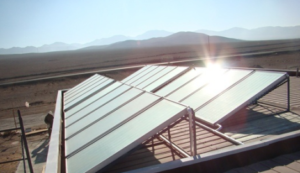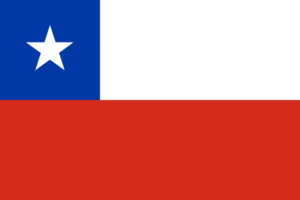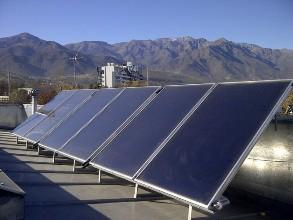Chile: Bad News No Longer
October 24, 2014
Ten months after the end of the tax credit scheme included in Law 20.365, the new government of President Michelle Bachelet in Chile has been taking steps to promote new solar thermal installations. The country’s installers and manufacturers are looking forward to seeing the amended law, which will reactivate a tax credit scheme for solar thermal systems in newly built residential homes (see the attached draft of the October law), come into effect on 1 January 2015.
Photo: THC Solar
Former Prime Minister Sebastián Piñera’s term in office (2010-2014) will be remembered as one of the dark chapters in the history of Chile’s solar thermal sector. His government did not extend the tax credit scheme at the end of 2013, and bearing in mind that the law was mostly in force from 2012 on, it boiled down to barely two years of incentives for Chileans. During the past years, the country’s solar sector has clearly suffered from the lack of incentives: Flat plate collector manufacturer THC Solar halted production in 2014 because of extremely weak demand, and Javier Ferrada, Commercial Director at collector producer Britec, confirmed that the company’s production of flat plate collectors dropped from 3,000 m² in 2012 to 400 m² in 2013.
Draft for new tax credit regulations
Since March 2014, the situation seems to have changed: The new government headed by Michelle Bachelet appears to stick to its election campaign promises, one of which was the extension of the tax credits from Law 20.365. On 30 September, the Chamber of Deputies received the draft of an amended and improved Law 20.365. It includes a new tax credit regulation for residential newbuilds with an appraised value of between Unidad de Fomento (UF) 1,000 and 3,000 UF, which corresponds to between EUR 32,000 and EUR 64,000 per housing unit. UF is a unit of account that has been used in Chile since 1967. The exchange rate between the UF and the Chilean peso is constantly adjusted for inflation, so that the UF values remain constant.
The tax credit beneficiary will be the building company: It will receive a maximum of UF 26.5 (EUR 859) and UF 33 (EUR 1,069) in form of a tax credit when installing a solar water heater (see Article 1, page 12 and 13 of the attached draft law). After the third year the law will have been in force, the cap will be reduced step by step. Some USD 45 million has already been allocated to the tax credit programme, which is expected to come into force on 1 January 2015 and run until 2019.
Direct subsidies for social housing
Regarding the social housing segment, there is some good news to report as well: Whereas the previous law only allowed tax credits for residential newbuilds, the new draft will also enable the allocation of direct subsidies to developers and construction companies of social housing (see Annex part I.1 page 19 in the attached document). One of the aims of the original law was to address the lack of hot water for a large part of the population. According to the 2002 census, 47 % of all Chileans had no access to hot water. The previous law had been designed to address the problem within the social housing segment, but its short lifetime and obvious deficiencies limited the success of the tax credit scheme. According to a press release from 8 October, the Chilean solar energy association, ACESOL, estimates that around 37,000 families benefitted from the last 20.365 tax credit scheme.
The amount of incentives to be allocated as a direct subsidy to social housing developments has not been specified yet, but ACESOL aims to secure an “appropriate amount of subsidy, so that the technical and quality requirements of the systems will be met,” as it says in the aforementioned press release.
To fulfil these quality requirements, the new law will also include an obligation for installation companies to sign an operation and maintenance contract over a period of five years. With an appropriate new incentive scheme, ACESOL estimates that more than 150,000 new low-cost houses could be equipped with solar thermal systems across the country by 2020.
More information:


